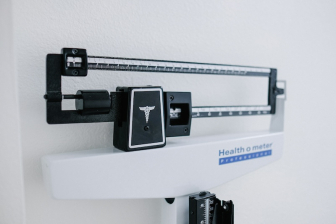Supporting the Named Patient: Healthcare professionals
Last updated: 13 November 2023
You can legally access new medicines, even if they are not approved in your country.
Learn howThis article is the second of two that will explore different parts of the Named Patient Import from our perspective and those of healthcare professionals. In this article we will give a brief recap of the Named Patient basis. Then we will address common questions and concerns that doctors and pharmacists may have when accessing approved medicines that are not approved or not yet available in their home country.
Doctors take the Hippocratic Oath and do their utmost to secure the best health outcomes for their patients. However, there is still a vast amount of information and resources that are not widely known or easily accessible. This includes the service that we provide. When approached by a patient, most doctors may be aware that it is possible to obtain treatments only available in a foreign country...but do they know how access these medications? Let's first start by explaining what the Name Patient is and the role of everyone.org.
Introduction to the Named Patient
As mentioned in the previous article, a patient (the Named Patient) with a life-threatening, long-lasting or seriously debilitating illness has the right to access, purchase, and import medicines that are potentially life-saving or able to improve quality of life. There are various programmes and regulations in different countries that allow patients to access such treatments. Among these are the Compassionate Use Programme, Named Patient Import, and Early Access Programme, to name a few. (To learn more about the other types of programmess for accessing medicines, please see the resources listed the end of this article.)
Defining our role
At everyone.org our mission is to be a portal so that everybody, no matter who they are or where they live, has equal, fast and fair access to the latest and best healthcare. As a wholesaler registered with the Dutch Ministry of Health, we work on behalf of the individual patient, on a Named Patient Import basis, in accord with their treating doctor. We support them in accessing medicines when certain requirements are fulfilled:
- The medicine has market approval in another country and is not approved or available in their own country.
- There is no alternative on the market.
- The medicine is for personal use.
- The patient has a prescription-letter from their doctor in their home country.
- The medicine must be dispensed from a pharmacy.
In the Named Patient Service that we provide, we encourage the patient to consult their doctor to establish their best course of treatment. Once we get a prescription-letter for that treatment, we confirm the validity of the information given then manage all the next steps - from sourcing to shipping, to customs and delivery, as well as following up to make sure that everything was received in good order.
Doctors like you
Everyday our knowledgeable and compassionate support team is in contact with treating doctors, medical specialists and institutions, as well as pharmacists. Often, healthcare providers do not quite grasp the power they possess to make their patient into a Named Patient. This opens up the world to your patient and gives them an opportunity to find the treatment they need to have a better quality of life.
Having our own in-house doctors and pharmacists, we truly understand the pressing concerns faced by healthcare professionals when approaching us. Some of the most common questions we get are: 1) Is this legal? 2) Can we be trusted? 3) Are the medications of good quality? 4) How can I find out more about these new medications and how our service works? 5) Are there any risks for me and my patient?
Legal and credible
For questions 1-3, the answer is YES! The SocialMedwork is a legally recognised company registered with the Dutch Ministry of Health in The Hague, registration number 6730 BEM. Over 3,000 patients, their doctors and loved ones have put their trust in us. Operating in over 70 different countries, we follow a strict set of rules laid out by the Ministries of Health, the Named Patient-type regulations and customs agencies in those areas of the world. We carefully choose our suppliers based on the quality of the products they offer as well as their ability to maintain a reliable stock. We also negotiate to get the lowest price so we can quickly pass along these savings to the patients we support.
Reliable information
Question 4 asks how you, the medical professional, can find out more about the new treatments and our service. We know that treating doctors have so much to do in very little time and that a Named Patient often does not have the time or energy to explore every possible avenue, even though both doctor and patient may wish otherwise. For this reason our support team, in combination with our in-house doctors and pharmacists, have compiled an extensive and up-to-date database on all the medications we have access to, as well as all the regulations surrounding our Named Patient Service. We happily share this information and their sources with you so that you can make the most informed, efficient and effective decision possible.
Mitigated risk
As for question 5, our team of pharmacists, physicians and lawyers offer customised support to you and your patient to mitigate any risk. Beforehand, we'll tell you what to expect, what paperwork must be submitted and keep you informed about anything relevant to your case. Our partners have been vetted to comply will all legal and transport regulations so the high-quality medicines arrive as quickly as possible and in perfect condition.
Somewhere in the world, someone needs special medication to improve or save their life. Somewhere else in the world, this medication has been approved. Unfortunately, this is not an unusual scenario. everyone.org aims to bridge that gap. We have all been impacted by this disconnect on a personal level. So we feel very strongly that our loved ones, your loved ones, your patients and everyone deserves a fair chance at a better life. Early access-type programmes are a means to achieve this and we want to connect you to those opportunities.
As one of the first companies to provide the Named Patient Service, we are aware that we are entering a new frontier. By providing more information on this subject, we aim to educate patients, healthcare professionals and policy-makers all over the world so they understand that they have the power to effect positive change. To date, healthcare policy has not caught up with the existing need for cross-national treatment and in our next article, we will dive more deeply into this issue.
References
- Questions and answers on the compassionate use of medicines in the European Union [PDF], European Medical Agency, January 2010.
- Iudicello A., Alberghini L., Benini G. and Mosconi, P. EExpanded Access Programme: looking for a common definition. Trials, 2016;17:21, 2016/01/12
- Watt, J. Policies Relating to the Management of Medicines - Section 9.3: Expanded access / Compassionate use / Named patient supply programmes for unlicensed medicines - Guidance notes [PDF], NHS Greater Glasgow and Clyde, December 2014




